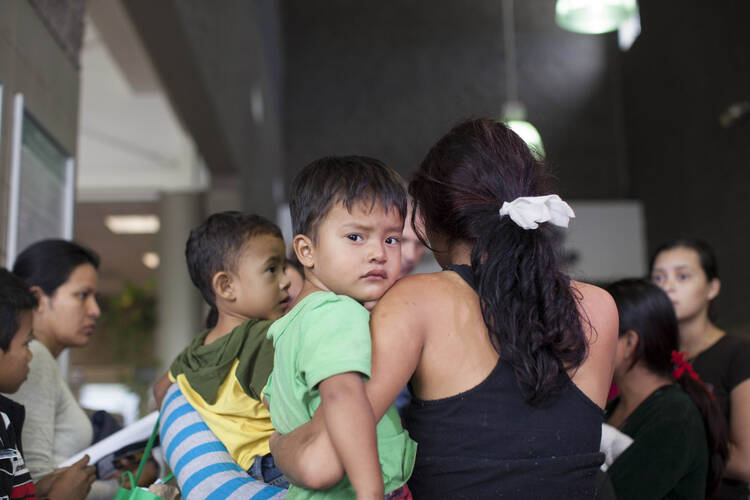In 2015 alone, more than 100,000 people fled Honduras, Guatemala and El Salvador for Mexico and the United States—a number expected to rise in 2016. “The number of people fleeing violence in Central America has surged to levels not seen since the region was wracked by armed conflicts in the 1980s,” said United Nations High Commissioner for Refugees spokesperson Adrian Edwards.
The U.N.H.C.R. hosted an international summit that explored possible solutions to the migrant crisis with the Organization of American States on July 6-7 in San José, Costa Rica. The summit, described as the first of its kind, included representatives from the United States, Mexico, Belize, Honduras, El Salvador and other states.
Those in flight from Central America are left “with few avenues for safe passage to seek asylum,” said Filippo Grandi, the U.N. High Commissioner for Refugees. He added that more often than not, refugee “needs [are] left without an adequate response.” Participants settled on possible methods to address this inadequacy, like improving cooperation of organizations providing relief to asylum seekers, such as those running shelters or providing legal services; and helping migrants integrate into nations where they seek asylum.
Participants also discussed the need to find alternatives to detention centers to warehouse migrants while their asylum appeals are reviewed. Those facilities are especially prevalent in the United States. According to the U.S. Immigration and Customs Enforcement, there are over 100 centers in the United States, making it home to the largest immigration detention system in the world.
In 2014, when the number of unaccompanied minors fleeing Honduras, Guatemala and El Salvador—also known as “The Northern Triangle”—was at its highest, the Department of Homeland Security increased the detention of mothers and children by 4,000 percent. That raised the annual cost of detention centers by over $300 million between 2014-15. According to the National Immigrant Justice Center, the Obama administration has also “requested $345.3 million to fund family detention in the FY 2016 budget and increased the bed quota to 34,040.”
The prospect of being locked up in detention centers is often seen as a way to deter other Central Americans from attempting to flee into asylum countries. A study from the American Immigration Council, however, shows that Central American men, women and children are still choosing to flee the Northern Triangle. “Between October 2015 and January 2016, [Customs and Border Protection] apprehensions of families and unaccompanied children in the southwest border increased more than 100 percent compared to the same period in the previous year,” the study finds. Despite increased surveillance at the U.S.-Mexican border, as well as increased resources from the United States to Mexico through programs like the Mérida Initiative, these citizens find the trip into asylum nations preferable to the crime and violence in their homelands.
The two-day summit in Costa Rica will not be the last time nations get to come together and discuss the Central American migrant crisis. On Sept. 19, during the U.N. General Assembly in New York various countries will once again join together to address the issue of refugees and migrants. And on Sept. 20, President Barack Obama will host a Leader’s Summit on Refugees.
To conclude the summit, Volker Türk, U.N.H.C.R.’s Assistant High Commissioner for Protection praised this first meeting in Costa Rica. “We are very encouraged by the open and frank spirit in which the discussions took place,” he said, “and hope that the various actions announced will have a direct positive impact on the people who are affected by displacement.”








